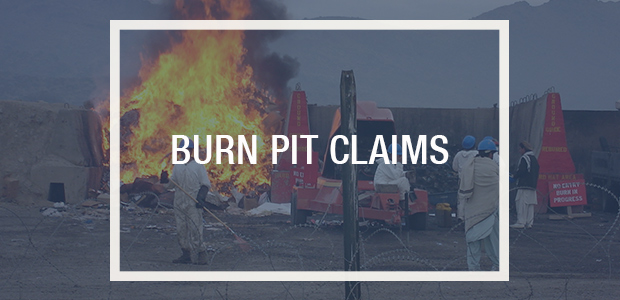Burn Pit Exposure and the Defense Base Act
Burn pit exposure cases should be handled by an experienced law firm to ensure justice is served. Brian C. Karsen

Burn Pit Exposure and the Defense Base Act
Civilian contractors working overseas under U.S. government contracts may have been exposed to toxic substances from burn pits, incinerators, dust storms, or other environmental hazards during their employment. Burn pits, used for waste disposal through incineration, often contained hazardous materials, including carcinogens. In some cases, jet fuel was used to ignite the fires, releasing toxic fumes into the air. One burn pit in Afghanistan reportedly spanned nearly ten acres.
Exposure to these toxins has led to serious health conditions among both civilian contractors and members of the U.S. Armed Forces. For years, affected individuals struggled to obtain recognition and benefits, as medical science had not yet established a clear causal link between exposure and illness. Many claims were denied, leaving injured workers to prove the connection through medical evidence, a process that is often difficult and expensive.
The PACT Act and Its Limitations
In response to mounting pressure and widespread illness among servicemembers, Congress passed the Promise to Address Comprehensive Toxins Act (PACT Act) in August 2022, which was signed into law by President Biden. The PACT Act provides presumptive benefits to U.S. Armed Forces personnel who develop certain conditions after burn pit exposure. These individuals are no longer required to prove causation; the law assumes a connection between exposure and specific illnesses.
Recognized conditions under the PACT Act include:
• Asthma
• Cancers of the head, neck, respiratory system, gastrointestinal tract, reproductive organs, lymphatic system, kidneys, brain, and skin (melanoma)
• Glioblastoma
• Chronic bronchitis
• Chronic obstructive pulmonary disease (COPD)
• Constrictive or obliterative bronchiolitis
• Emphysema
• Granulomatous disease
• Interstitial lung disease
• Pleuritis
• Pulmonary fibrosis
• Sarcoidosis
• Chronic sinusitis
• Chronic rhinitis
Civilian Contractors and the Defense Base Act
Unfortunately, the PACT Act does not apply to civilian contractors covered under the Defense Base Act. These individuals are not entitled to a presumption of causation. Instead, they must:
- Prove exposure to burn pits during employment.
- Establish the duration and extent of exposure.
- Obtain a medical opinion linking the exposure to their condition.
Even with supporting evidence, employers and insurance carriers may dispute the claim, requiring litigation before an administrative law judge.
Looking Ahead
As medical research continues to evolve, the causal relationship between toxic environmental exposures and specific conditions will become clearer. This progress will benefit civilian contractors pursuing DBA claims. Although the PACT Act does not apply directly, its recognition of certain conditions may lend credibility to similar claims under the DBA.
The attorneys at Barnett, Lerner, Karsen, Zobec, P.A. are committed to evaluating potential claims related to burn pit exposure. If you believe your condition may be linked to toxic exposure during overseas employment, we welcome the opportunity to assess your case and pursue benefits on your behalf.
Our Videos
Would you like to learn more? Still need a little more information? Our videos may help.
Get Started
Work with a team that cares about you. Our team has the experience to get you the justice you deserve.
